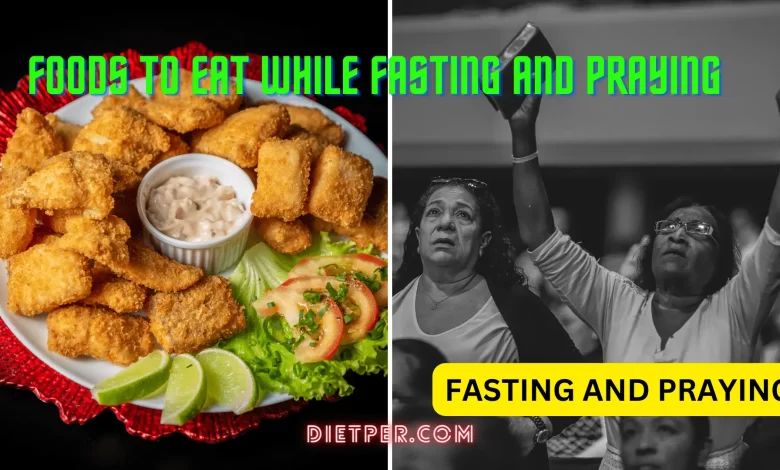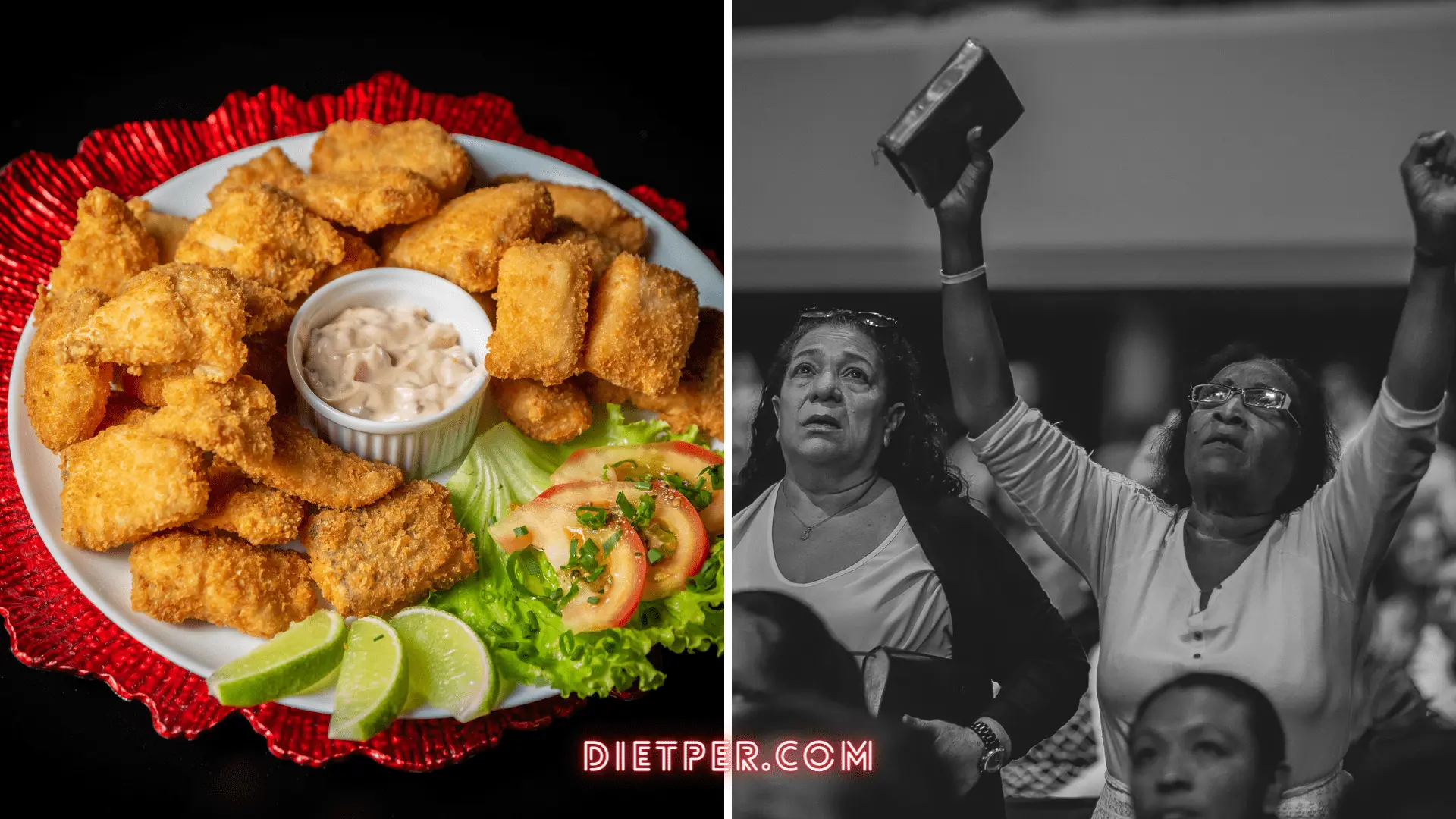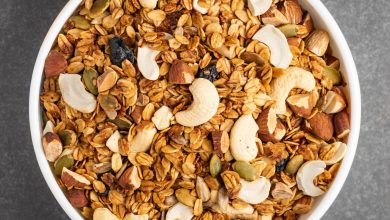A Spiritual Feast: Foods to Eat While Fasting and Praying
Nourishing the Spirit: Foods to Eat While Fasting and Praying

Foods to eat while fasting and praying: Fasting and praying are age-old spiritual practices that have played a central role in the lives of individuals from various cultures and religious backgrounds throughout history. These practices are deeply rooted in the human experience and have been used as tools for self-discovery, spiritual growth, and a closer connection to the divine.
Fasting, Prayer, and Foods to Eat While Fasting and Praying
Fasting: A Journey of Self-Renewal
At its core, fasting involves the voluntary abstention from foods to eat while fasting and praying and, in some cases, beverages for a defined period. Fasting is a multifaceted practice that serves both physical and spiritual purposes.
Physically, fasting offers the body a much-needed break from digestion, allowing it to redirect energy towards healing, detoxification, and rejuvenation. On a spiritual level, fasting creates an opportunity for self-reflection, heightened awareness, and increased sensitivity to one’s inner self. It can be seen as a symbolic act of self-control, humility, and a means of breaking free from the distractions of everyday life.
Prayer: A Connection to the Divine
Prayer, on the other hand, is a universal language of the soul, transcending borders and beliefs. It is the act of communicating with a higher power, seeking guidance, solace, and gratitude. Whether offered through spoken words, silent contemplation, or ritualistic practices, prayer allows individuals to connect with the divine and explore their innermost thoughts and emotions.
Foods to eat while fasting and praying can play a significant role in providing sustenance and nourishment during periods of spiritual devotion.
Prayer serves as a source of strength, comfort, and a means to express one’s hopes, fears, and desires. It is a sanctuary where individuals can find solace in times of distress, offer thanks in times of joy, and seek wisdom and guidance in times of uncertainty.
Popular Articles :
- The Vertical Diet: A Breakdown of Its Benefits and Drawbacks
- Delicious Low FODMAP Fast Food: Fruit, Nut, Snack, and Vegetable Recipes
- The Plant-Powered Path: Intermittent Fasting Vegan Meal Plan
The purpose and benefits of fasting
Foods to eat while fasting and praying can vary widely based on cultural and religious traditions, but they are often chosen with the intention of nourishing the body while maintaining the sanctity of the fast.
Fasting, the voluntary abstention from foods to eat while fasting and praying or drink for a specified period, has been practiced for centuries in various cultures and religions for a multitude of reasons. While the motivations behind fasting can differ significantly from person to person, there are some overarching purposes and benefits that many individuals seek to achieve through this ancient practice.
1. Spiritual Growth and Discipline:
Fasting is often used as a means to enhance spiritual growth and discipline. It can create a heightened sense of self-control and self-awareness. Many religious traditions view fasting as a way to detach from worldly distractions and draw closer to the divine. It serves as a reminder of the importance of spiritual nourishment and self-mastery over physical desires.
2. Cleansing and Detoxification:
Fasting allows the body to divert energy typically used for digestion towards healing and detoxification. During a fast, the body can eliminate accumulated waste and toxins, promoting overall health and vitality. Intermittent fasting, in particular, has gained popularity for its potential to support cellular autophagy, a process that helps remove damaged cells and supports the regeneration of healthy ones.
Foods to eat while fasting and praying can play a significant role in providing essential nutrients during fasting periods. These foods should be chosen thoughtfully to support the body’s natural detoxification processes and overall well-being.
3. Weight Management:
Intermittent fasting, which involves cycles of eating and fasting, has been studied for its potential benefits in weight management. By restricting the eating window, individuals may naturally reduce their calorie intake and, over time, achieve weight loss goals. It can also help improve insulin sensitivity, which is beneficial for individuals at risk of type 2 diabetes.
4. Mental Clarity and Focus:
Fasting can enhance mental clarity and focus. As the body switches from using glucose as its primary energy source to using stored fats (ketosis), some individuals report increased alertness and cognitive sharpness. This mental clarity can be valuable for tasks requiring concentration, including meditation and prayer. When engaged in activities like prayer, selecting the right foods to eat while fasting and praying during eating windows can provide the energy and nutrients needed to maintain focus and mental acuity.
5. Improved Metabolic Health:
Fasting has been associated with various metabolic benefits. It can help regulate blood sugar levels, reduce inflammation, and improve lipid profiles. These changes contribute to a lower risk of chronic diseases such as type 2 diabetes and cardiovascular disease.
6. Enhanced Immune Function:
Short-term fasting may stimulate the immune system by promoting the production of new immune cells. Additionally, the removal of damaged cells through autophagy can support immune health. However, it’s important to note that prolonged or extreme fasting can weaken the immune system, so moderation is key.
During fasting periods, choosing the right foods to eat while fasting and praying can contribute to maintaining immune health. Opting for nourishing and balanced options can provide essential nutrients that support the immune system’s functions.
7. Emotional and Psychological Healing:
Fasting can have profound emotional and psychological effects. It can help individuals address emotional issues, promote a sense of inner peace, and improve their relationship with food. Some people use fasting as a way to break unhealthy eating patterns or to cope with stress or emotional trauma.
8. Increased Awareness and Mindfulness:
When you abstain from food, you become more mindful of your body’s signals and sensations. Fasting encourages self-awareness and introspection, helping individuals become more attuned to their physical and emotional needs.
9. Cultural and Religious Observance:
Fasting plays a central role in many cultural and religious traditions. It is often seen as a way to express devotion, seek purification, and commemorate important events or seasons.
Foods to eat while fasting and praying
The foods to eat while fasting and praying period can depend on the type of fasting you are undertaking. Here, we will discuss foods that are commonly consumed during the two most prevalent types of fasting: intermittent fasting and religious fasting.
1. Intermittent Fasting:
Intermittent fasting involves cycling between periods of eating and fasting. Here are some foods to eat while fasting and praying windows:
a. Balanced Meals: When you are in your eating window, aim for balanced and nutritious meals. Include a source of lean protein (e.g., chicken, fish, tofu), healthy fats (e.g., avocados, nuts), and plenty of fruits and vegetables. Whole grains like brown rice or quinoa can provide sustained energy.
b. Fruits and Vegetables: These foods are rich in vitamins, minerals, fiber, and antioxidants. Incorporate a variety of colorful fruits and vegetables into your meals to ensure you get a broad range of nutrients.
c. Lean Proteins: Protein is essential for maintaining muscle mass and promoting satiety. Good sources include poultry, fish, lean meats, eggs, and plant-based options like legumes and tofu.
d. Healthy Fats: Include sources of healthy fats like avocados, nuts, seeds, and olive oil in your meals. These fats can help keep you feeling full and provide essential fatty acids.
e. Hydration: Stay well-hydrated during your eating window by drinking water, herbal teas, and other non-caloric beverages. Proper hydration is crucial for overall health.
2. Religious Fasting (e.g., Ramadan, Lent):
Religious fasting often includes specific traditions and guidelines for Foods for Spritual Fasting . Here are some common Foods to eat while fasting and praying periods:
a. Suhoor (Pre-Dawn Meal): This meal is typically eaten before sunrise and should provide sustained energy throughout the day. Consider foods like oatmeal, whole-grain bread, yogurt, fruits, and plenty of water. Protein sources such as eggs or lean meats can help you stay full.
b. Iftar (Breaking the Fast): This meal is consumed after sunset and traditionally begins with dates and water. After that, a balanced meal is usually enjoyed, including soup, grains, vegetables, and protein sources like chicken, fish, or lamb.
c. Dates: Dates are often eaten to break the fast due to their natural sugars, fiber, and quick energy release.
d. Hydration: Proper hydration is essential during religious fasting periods. Drink plenty of water between sunset and sunrise to prevent dehydration.
e. Sweets and Treats: Many cultures have special sweets and treats that are enjoyed during religious holidays. These should be consumed in moderation.
Healthy and nutritious options for meals and snacks
Choosing healthy and nutritious options for meals and snacks is essential for maintaining overall well-being, providing your body with the necessary nutrients, and supporting energy levels. Here are some ideas for balanced meals and snacks:
Balanced Meals:
Grilled Chicken Salad: Combine grilled chicken breast with a variety of colorful vegetables like leafy greens, tomatoes, cucumbers, and bell peppers. Add some chickpeas or quinoa for extra fiber and protein. Top with a light vinaigrette dressing.
Salmon with Steamed Vegetables: Baked or grilled salmon is rich in omega-3 fatty acids. Pair it with steamed broccoli, carrots, and asparagus for a nutrient-packed meal. Serve with a side of brown rice or quinoa.
Vegetable Stir-Fry: Stir-fry a mix of broccoli, snap peas, bell peppers, and tofu or lean beef in a low-sodium sauce. Serve over brown rice or whole-grain noodles.
Sweet Potato and Black Bean Bowl: Roast sweet potato cubes and combine them with black beans, corn, diced tomatoes, and avocado. Drizzle with lime juice and add a sprinkle of cilantro for a flavorful, fiber-rich meal.
Mediterranean Quinoa Bowl: Prepare a quinoa base and top it with Mediterranean-inspired ingredients like cherry tomatoes, cucumber, Kalamata olives, feta cheese, and grilled chicken or chickpeas. Dress with olive oil and lemon juice.
Healthy Snacks:
Greek Yogurt with Berries: Greek yogurt is high in protein and probiotics. Top it with fresh berries and a drizzle of honey for a satisfying and nutritious snack.
Hummus and Veggies: Dip baby carrots, cucumber slices, cherry tomatoes, and bell
Foods to avoid while fasting and praying
When fasting and praying, especially for religious or spiritual purposes, there are certain foods to eat while fasting and praying and substances that are typically avoided to maintain the sanctity and intentions of the fast. The specific dietary restrictions can vary based on religious and cultural traditions, but here are some common foods and substances to avoid during fasting and prayer:
1. Food and Drink
- All Food and Beverages: Depending on the fasting tradition, complete abstention from all food and drinks, including water, may be required during fasting hours.
- Alcohol: Alcoholic beverages are generally prohibited during fasting periods as they can impair judgment and hinder the spiritual focus of prayer.
- Caffeine: Coffee, tea, and caffeinated beverages may be avoided as caffeine can affect alertness and may be seen as a distraction during prayer.
- Tobacco and Smoking: Smoking is typically discouraged as it goes against the principles of purity and health in many religious traditions.
2. Specific Dietary Restrictions
- Meat: In some religious fasts, especially in Christianity (e.g., Lent), red meat or all meat products may be avoided on certain fasting days. Fish and seafood may be allowed on some occasions.
- Dairy Products: In some traditions, dairy products like milk, cheese, and yogurt may be restricted during fasting periods. This is commonly observed in Eastern Orthodox Christianity.
- Eggs: Some fasting traditions prohibit the consumption of eggs, while others allow them. It depends on the specific fasting guidelines of the religion or denomination.
- Certain Spices and Flavorings: Strongly flavored or spicy foods may be avoided as they can be seen as overly stimulating to the senses.
- Oil and Fats: Some fasts restrict the consumption of oils and fats, while others allow for small amounts.
3. Unhealthy and Processed Foods
Highly processed and unhealthy foods, such as sugary snacks, fried foods, and fast food, should generally be avoided during fasting. These items can lead to energy spikes and crashes, which can interfere with the focus of prayer and meditation.
4. Overindulgence
It is important to avoid overeating or indulging in large meals when breaking the fast (iftar), as this can lead to discomfort and indigestion. Instead, break the fast with a light and balanced meal.
5. Fasting Should Promote Self-Discipline
The overarching principle in fasting and praying is self-discipline. Avoiding luxurious or extravagant foods, as well as excessive consumption, is often encouraged.
It’s essential to note that fasting practices can vary significantly between different religious and cultural traditions. Therefore, it’s crucial to follow the specific guidelines and traditions associated with your faith or fasting practice
Final Thoughts – Foods to eat while fasting and praying
Incorporating fasting into your spiritual practice is a deeply personal journey. It’s a commitment to both your inner and outer well-being, a path towards self-discovery, and an expression of devotion and faith. As you embark on this journey, it’s essential to approach it with mindfulness, respect for your body, and guidance from spiritual leaders or advisors if needed.

Foods to eat while fasting and praying should be chosen with care, focusing on nourishing options that support your physical and spiritual needs. When done with intention and reverence, fasting is a transformative experience. It is a reminder of the power of self-discipline, the importance of gratitude, and the enduring strength of the human spirit. Whether you fast for a day, a week, or as part of a regular practice, it has the potential to enrich your spiritual life and nourish your soul in ways that extend far beyond the physical act of abstaining from food.
Foods to eat while fasting and praying pdf
Disclaimer
This blog post aims to empower you to make informed and health-conscious food choices. Your well-being is of paramount importance, and it’s essential to prioritize your health before embarking on any restrictive diets. Therefore, if you have any concerns, it is highly advisable to seek guidance from a healthcare professional or registered dietitian before making dietary changes.




